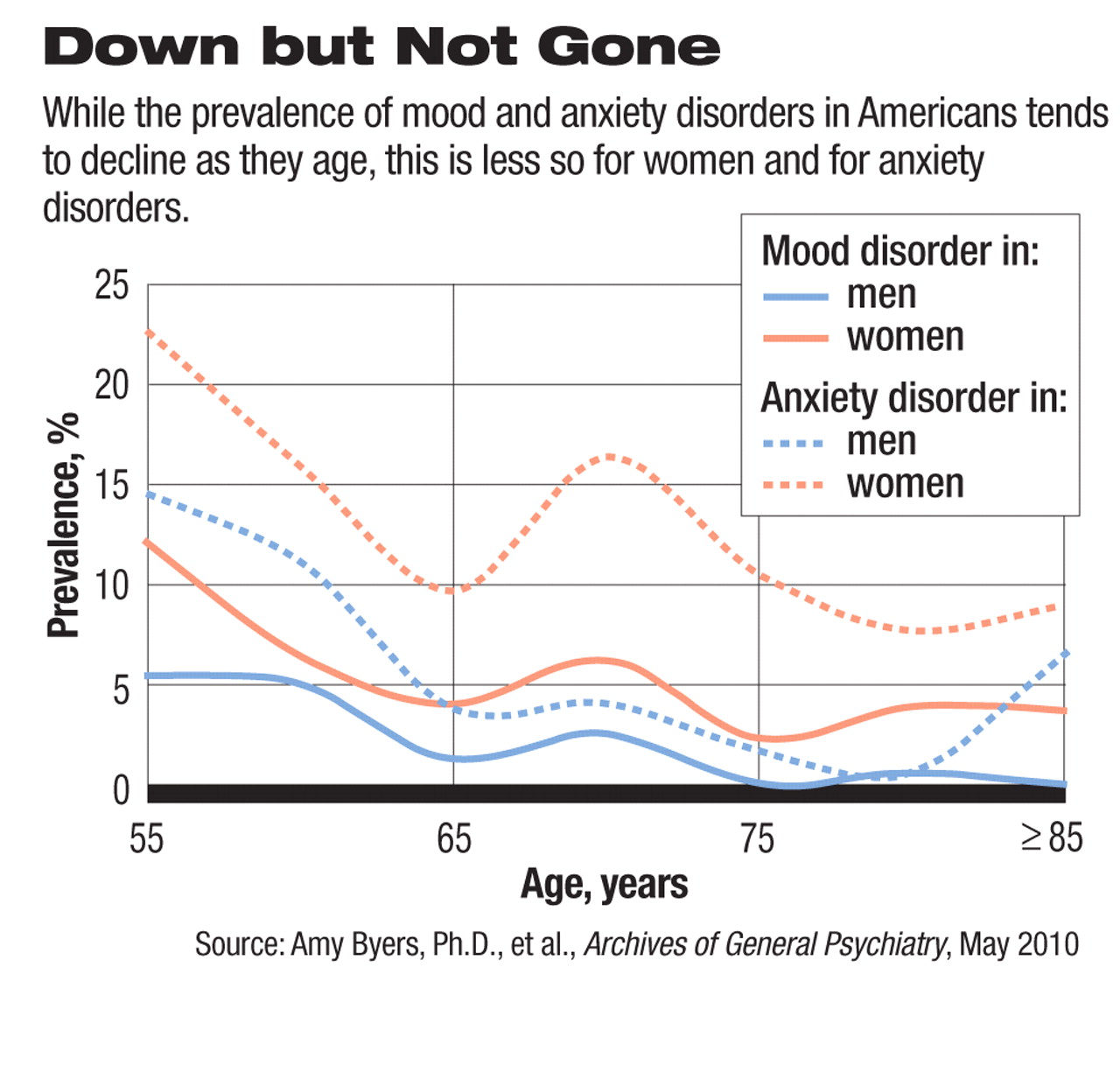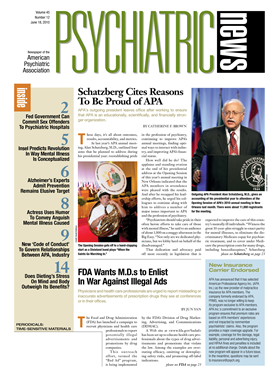Could it be that mental health, like a good wine, improves with age? Evidence has been building that this might be the case (Psychiatric News, November 2, 2007).
Now still more evidence bolstering this possibility was published in the May Archives of General Psychiatry. The study has found that the prevalence rates of mood and anxiety disorders decline with age.
The study's lead investigator was Amy Byers, Ph.D., an assistant professor of psychiatry at the University of California, San Francisco.
Byers and her colleagues used data from the National Comorbidity Survey Replication (NCS-R) for their study. The NCS-R surveyed, from 2001 to 2003, 9,282 participants aged 18 or older who were representative of the American population. The NCS-R has already provided a wealth of information about mental health and illness in Americans.
The researchers focused on data for the 2,575 NCS-R participants who were aged 55 or older. They wanted to determine the 12-month prevalence rates of mood and anxiety disorders for “young-old” subjects (aged 55 to 64), “mid-old” subjects (aged 65 to 74), “old-old” subjects (aged 75-84), and “oldest-old” subjects (aged 85 or older).
They found that the likelihood of having a mood, anxiety, or combined mood-anxiety disorder significantly declined with age. For example, whereas 8 percent of subjects aged 55 to 64 had experienced a major depressive disorder during the preceding year, only 2 percent of subjects aged 85 or older had. The trend applied to both men and women and to people of various races and ethnicities.
But at the same time, the researchers found that mood and anxiety disorders were far from uncommon in subjects aged 55 or older, especially women. Moreover, anxiety seemed to be more of a problem for subjects in this age range than depression was. For example, 9 percent of subjects aged 65 to 74 had experienced an anxiety disorder during the previous year, while only 4 percent of subjects in this age range had experienced a mood disorder during the previous year.
“This study was a well-conducted analysis of a unique database and conducted by some of the top experts in geriatric psychiatry,” Dilip Jeste, M.D., a geriatric psychiatrist and chair of aging studies at the University of California, San Diego, told Psychiatric News. “Their finding that while the prevalence rates of mood and anxiety disorders decline with age but still remain high in older people is of considerable public-health significance because of the implications for prevention and treatment.”
Furthermore, the rates of these and other major psychiatric disorders will increase further among older adults in the decades to come, Jeste said, since other data have suggested that aging baby boomers are likely to have higher rates of mental illness than the current population of older adults. Thus the need for geriatric psychiatrists will increase dramatically during the next few years, he predicted.
The study was funded by the National Institutes of Health, the Substance Abuse and Mental Health Services Administration, the Robert Wood Johnson Foundation, and the John W. Alden Trust.

